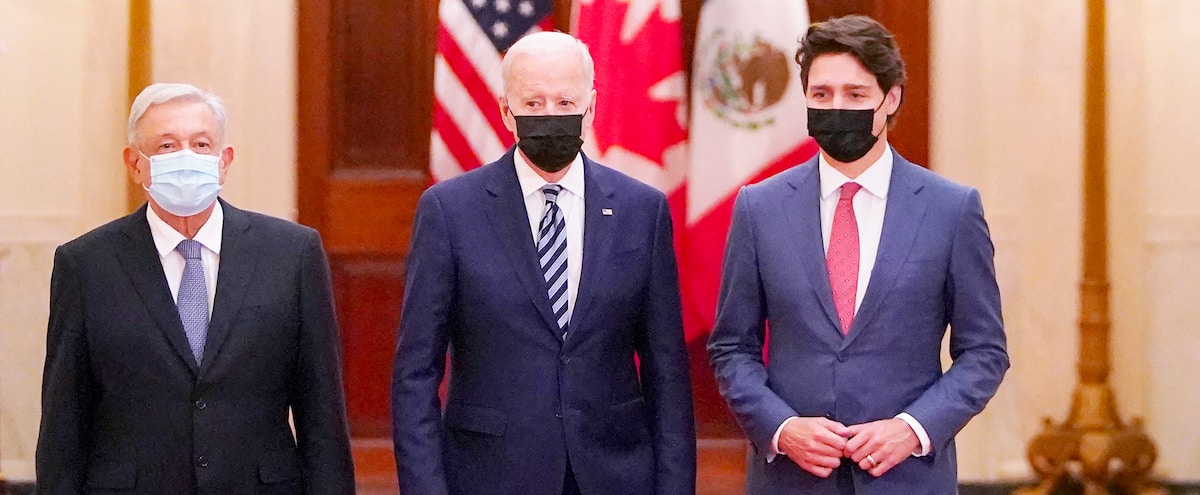OTTAWA | Washington is turning a deaf ear to threats from Ottawa a month ago in the hope of countering the protectionism of President Joe Biden, particularly in the assembled electric vehicle sector in the United States.
• Read also: American protectionism: a “Buy North America Act” possible?
As part of its Build Back Better plan, the Democratic administration is providing a tax credit of up to $ 12,500 for buyers of vehicles made entirely in the United States by unionized workers.
Mary Ng
Minister of International Trade
–
–
–
For International Trade Minister Mary Ng, this incentive would cause “serious and irreparable damage to the auto industry” here and is contrary to the rules of the Canada – United States – Mexico Agreement (CUSMA), which Washington refutes.
In reply, at the beginning of December, Mme Ng and Finance Minister Chrystia Freeland wrote to congressional officials threatening them to suspend parts of the free trade agreement and impose tariffs on U.S. products.
Mme Ng then went to Washington to meet with some representatives. But if they “took note” of the letter, they did not commit to anything and no formal response has been sent to Ottawa to date, said a source in the minister’s office.
Tip of the iceberg
For Geneviève Dufour, director of the master’s degree in international law at the University of Sherbrooke, the Trudeau government is too slow to react to the protectionism of our neighbors and should legally respond quickly.
“Electric vehicles are only the tip of the iceberg,” she warns. Every contract that is going to be given under the Build Back Better law will exclude our companies. It’s enormous. Billions of dollars will be invested that we will not be able to access. “
In November, Canadian exports to the United States jumped 6.4% from the same period a year earlier. But this record boosted by the post-pandemic recovery should not make us forget what is going on in the Oval Office.
It’s urgent
The US $ 1.8 trillion Build Back Better plan that includes the proposed electrification tax credit has been passed in Congress and must now get the green light from the Senate.
It comes on top of a US $ 1 trillion infrastructure plan that was adopted in November and includes a slew of public contracts reserved for US companies.
For Ms. Dufour, it is urgent that Ottawa study these plans point by point, list the elements that go against CUSMA and contest them.
“All I see are ministers going to Washington to talk,” she laments, calling for concrete action.
The election of Joe Biden put an end to the open trade war waged by his predecessor Donald Trump. But it does not change the fact that Democrats are historically resistant to free trade, recalls international law expert Geneviève Dufour. In this context, just before the holidays, in his mandate letters, Prime Minister Trudeau called on his economic trio to be firmer against the United States. Here are some of the trade disputes that are burning between our two countries.
Lumber
Convinced for decades that Canada is selling its lumber too cheaply, the United States practically doubled the countervailing duties it charges on these products last November. They went from an average of 8.99% to 17.9%. To challenge them, on December 22, Ottawa formally filed challenges under Chapter 10 of the Canada – United States – Mexico Free Trade Agreement. This conflict has resurfaced regularly for 40 years. “Decisions on this issue have consistently concluded that Canada is a fair trading partner, and Canada is confident that it will continue to be so,” said Minister Mary Ng.
Pipeline
Michigan wants to close Enbridge’s Line 5, which transports oil and gas from Western Canada to Quebec and Ontario through the fragile Great Lakes ecosystem. For Ottawa, it is an infrastructure “essential to the security and economic prosperity of Canada”. But for Michigan it is a “time bomb” that threatens to leak. The case is before the courts. Canadian lawyers argue that Michigan is violating a 1977 bilateral treaty between the United States and Canada which prevents “interfering with the operation of international pipelines for the delivery of hydrocarbons in the absence of precise justifications ”.
Milk
Ottawa lost its first litigation against the United States on December 20 under the new Canada – United States – Mexico Agreement (CUSMA). A dispute resolution panel found that Canada broke its promise to allow more imports of U.S. dairy products by imposing unfairly complex rules. Ottawa has until February to comply. “This historic victory will help remove unwarranted trade barriers on US dairy products,” said US Trade Representative Katherine Tai.
Electrification of transport
By offering to offer up to $ 12,500 to buyers who acquire 100% US-made vehicles, Joe Biden is shaking the Canadian auto industry. According to Flavio Volpe, president of the Auto Parts Manufacturers’ Association of Canada, this is “a greater threat than anything Donald Trump has done to us.” The measure would also put lead in the wing of the Quebec battery industry in full take-off. In addition, Quebec manufacturers of trucks and electric buses risk being excluded from US public contracts, fears the Bloc Quebecois.
To see also
–


